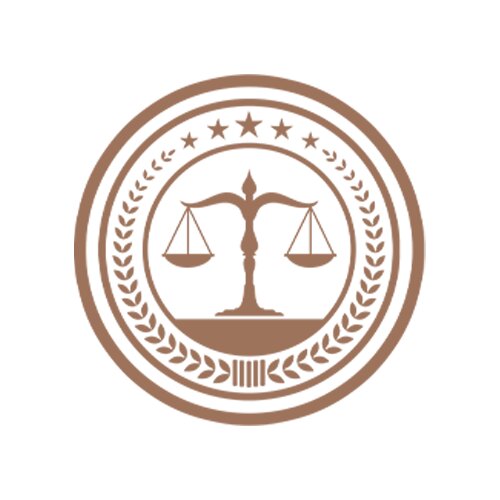Best Child Visitation Lawyers in Kuwait
Share your needs with us, get contacted by law firms.
Free. Takes 2 min.
Free Guide to Hiring a Family Lawyer
Or refine your search by selecting a city:
List of the best lawyers in Kuwait
About Child Visitation Law in Kuwait
Child visitation laws in Kuwait are designed to ensure the welfare and rights of children whose parents are separated or divorced. The laws aim to balance the rights of both parents to maintain a relationship with their children, while prioritizing the child's best interests. Generally, the non-custodial parent is granted visitation rights unless it is proven that the visits would harm the child's well-being. The court often regulates the frequency and terms of visitation to minimize conflicts and promote the child's happiness and stability.
Why You May Need a Lawyer
While navigating child visitation arrangements, there are various situations where legal help may be required. You may need a lawyer if you are unable to agree on visitation terms with the other parent, if your visitation rights are being unjustly restricted, or if you wish to modify an existing visitation order. Legal counsel is also beneficial in understanding your rights and obligations and ensuring any agreements are enforceable in court. Lawyers can guide you through mediation or court procedures, helping to achieve a resolution in the best interest of your child.
Local Laws Overview
Kuwait's family law is influenced by Islamic Sharia principles. The laws emphasize the rights of both parents while ensuring that the child's welfare is paramount. Under Kuwaiti law, the mother is generally granted custody during the early years of the child's life, with the father retaining visitation rights. The child's opinion may be considered if they are of an age deemed capable of making informed decisions. Modifications to visitation rights can be made if there is a significant change in circumstances or new evidence suggesting the current arrangement is not in the child's best interests.
Frequently Asked Questions
What determines the visitation schedule in Kuwait?
The visitation schedule is generally determined by the court, prioritizing the child's best interests. It can be agreed upon by both parents or imposed by a court order in case of disputes.
Can visitation rights be modified?
Yes, visitation rights can be modified if there is a substantial change in circumstances that affects the child's welfare or if both parents agree to the changes.
What happens if a parent refuses to comply with a visitation order?
If a parent refuses to comply with a visitation order, the other parent can seek court intervention to enforce the order, which may result in legal consequences for non-compliance.
Is the child's opinion considered in visitation cases?
Depending on the child's age and maturity, the court may consider their preference when determining visitation arrangements.
How does the court ensure the child’s safety during visitation?
Courts can set specific conditions and supervision requirements for visitation to ensure the child's safety and well-being.
Can grandparents have visitation rights in Kuwait?
The law primarily focuses on parental rights, but under certain conditions, third parties like grandparents can seek visitation rights if it's in the child's best interest.
Do I need a lawyer to negotiate a visitation agreement?
While it is not mandatory, having a lawyer can help ensure your rights are protected and that the agreement is fair and enforceable.
Can visitation rights be granted to an unmarried father?
An unmarried father can seek visitation rights, and the court will consider the best interest of the child before granting any rights.
What is the role of mediation in child visitation disputes?
Mediation can be an effective way to resolve disputes amicably and reach agreements that serve the child's best interests without going to court.
How are international visitation issues handled?
International visitation rights can be complex; it's advisable to seek legal counsel to navigate the jurisdictional and legal challenges involved.
Additional Resources
For further assistance, individuals can refer to organizations such as the Kuwait Society for Human Rights or contact the Kuwaiti Ministry of Justice. These bodies can provide guidance and support for those facing child visitation issues. Consulting social services or family counseling centers can also help address personal and emotional aspects of visitation disputes.
Next Steps
If you require legal assistance with child visitation, it is advisable to consult with a lawyer specializing in family law. They can provide personalized advice tailored to your situation and help you understand your rights and obligations better. You may also explore mediation services if you wish to negotiate terms amicably with the other parent. Preparing documentation regarding your visitation preferences and any relevant information can aid in efficient legal consultations. Lastly, consider reaching out to governmental or non-governmental organizations for additional support and resources.
Lawzana helps you find the best lawyers and law firms in Kuwait through a curated and pre-screened list of qualified legal professionals. Our platform offers rankings and detailed profiles of attorneys and law firms, allowing you to compare based on practice areas, including Child Visitation, experience, and client feedback.
Each profile includes a description of the firm's areas of practice, client reviews, team members and partners, year of establishment, spoken languages, office locations, contact information, social media presence, and any published articles or resources. Most firms on our platform speak English and are experienced in both local and international legal matters.
Get a quote from top-rated law firms in Kuwait — quickly, securely, and without unnecessary hassle.
Disclaimer:
The information provided on this page is for general informational purposes only and does not constitute legal advice. While we strive to ensure the accuracy and relevance of the content, legal information may change over time, and interpretations of the law can vary. You should always consult with a qualified legal professional for advice specific to your situation.
We disclaim all liability for actions taken or not taken based on the content of this page. If you believe any information is incorrect or outdated, please contact us, and we will review and update it where appropriate.
Browse child visitation law firms by city in Kuwait
Refine your search by selecting a city.















